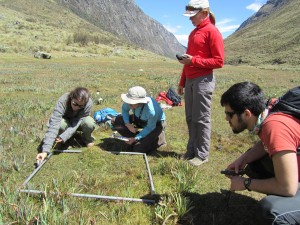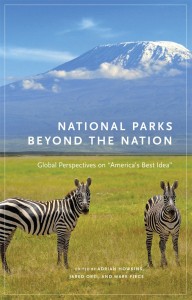Members of the Glacier Lab, along with several other colleagues, have published a new global analysis of the societal dimensions of glacier runoff. Published as part of a 2017 special issue of the Annals of the American Association of Geographers (vol. 107, no. 2), the article provides one of the first global and comparative assessments of water dynamics in glacier-fed watersheds. There is a large gap in research to date because so few social science and humanities (or human-focused studies) have been conducted. Our team found that, within the limited research that does exist, studies focus primarily in four areas: social impacts, hydropower, agriculture and food security, and cultural effects.
Importantly, we found that several “next steps” could enhance existing literature. In particular, future research could more clearly and explicitly attribute changing water use practices to glacier runoff variation. In essence, it is not enough to say simply that glaciers are shrinking and thus water conflicts will arise because water allocation and usage depends on a host of variables — from power and politics to economics, water rights laws, crop preferences and markets, cultural values, available infrastructure and technologies, social inequalities, and environmental forces. Glacier change is thus but only one factor affecting water distribution, and not everyone will be affected equally from glacier runoff variability. The literature to date, however, focuses almost exclusively on the role of climate change and glacier loss when making bold, sometimes exaggerated, claims about the effects of glacier retreat on downstream societies. In the end, one goal of the paper is to help “redefine and reorient the glacier-water problem around human societies rather than simply around ice and climate.”
The author team consists of Glacier Lab members Mark Carey, Olivia Molden, and M Jackson, as well as anthropologist Mattias Rasmussen (University of Copenhagen), hydrologist/glaciologist Anne Nolin (Oregon State University), and climatologist/geoscientist Bryan Mark (Ohio State University).

